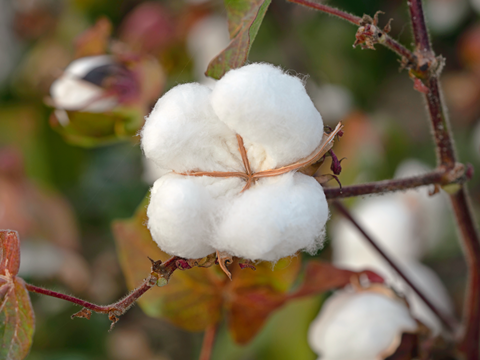
James Cropper says it has created a process to recover and use cotton fibres from the UK’s polycotton waste stream and transform them into paper.
The company states that as the fourth largest producer of textile waste in Europe, the UK generates over 200,000 tonnes of textile waste annually, with 10% being recycled and only pure cotton able to be used in papermaking, until now.
The pilot project, funded by Innovate UK, involved polycotton waste sourced from the UK’s commercial laundries. James Cropper says hotel bed sheets are currently only used 10 times before being incinerated, and the hotel industry has been searching for a sustainable solution.
The company says that instead of using ‘aggressive chemistry’ to reclaim polyester and cotton use, it explored a more sustainable approach to separate cotton and polyester within used white bed sheets, which is said to avoid a destructive effect on the fibres.
Apparently, the early lab trials are both an industry and ‘world first’. The trials resulted in up to 98% of cotton fibres being successfully recovered, and James Cropper adds that the new process has a published patent.
Once the project is completed, the company intends to scale the process, identify collaborators and evaluate wider industry implementation. It adds that its ultimate goal is to create a sustainable closed-loop system that diverts textile waste from landfills and incineration, contributing to a circular economy.
Joanne Storey, R&D programme lead at James Cropper, commented: “Low-value waste materials such as hotel bed sheets can now become valuable, recyclable paper-making fibres. And our ambitions don’t stop there. We want to explore how this regeneration technology could transform supply chains of a range of industries.”
In February, the company developed a fully recyclable paper pulp outer wrap for single malt Scotch whisky brand Bruichladdich’s Luxury Redefined range. The coloured fibre wrap is said to be manufactured using 100% green energy and wood pulp sourced from sustainably managed FSC- or PEFC-certified forests, and made from a single material, making it recyclable in household paper waste streams.
As part of the Innovation Spotlight series, we recently heard from Leipa about the ‘paperisation’ shift from plastic packaging to paper-based alternatives, and the benefits and challenges of paper composites. The company outlined the benefits of reduced plastic waste and carbon footprint, but also highlighted challenges such as the recyclability of paper composites being dependent on local recycling infrastructure.
If you liked this story, you might also enjoy:
The ultimate guide to the Packaging and Packaging Waste Regulation in 2024
How are the top brands progressing on packaging sustainability?
Sustainable Innovation Report 2024: Current trends and future priorities
Everything you need to know about global plastic sustainability regulation














No comments yet